10. The Rock
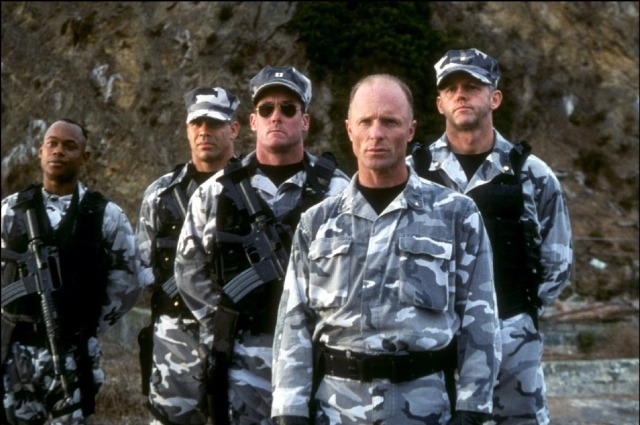
Michael Bay is certainly a divisive filmmaker, but he’s unquestionably one of the most influential forces in shaping what action movies are today, for better or worse. Few would argue with the assertion that The Rock is Bay’s best film; it contains all of the adolescent qualities that Bay is known for, namely a lot of explosions, car chases, and wacky soundtrack choices, but he shows a greater emphasis on character than he would in any of his later efforts, and charismatic performances from Sean Connery and Nicolas Cage elevate the simplicity of the writing.
Bay’s later films, specifically the Transformers films, would become extremely convoluted and nonsensical, but The Rock’s story is quite simple and straightforward. A celebration of excess and absurdity, The Rock is Bay in his element.
9. Mission: Impossible
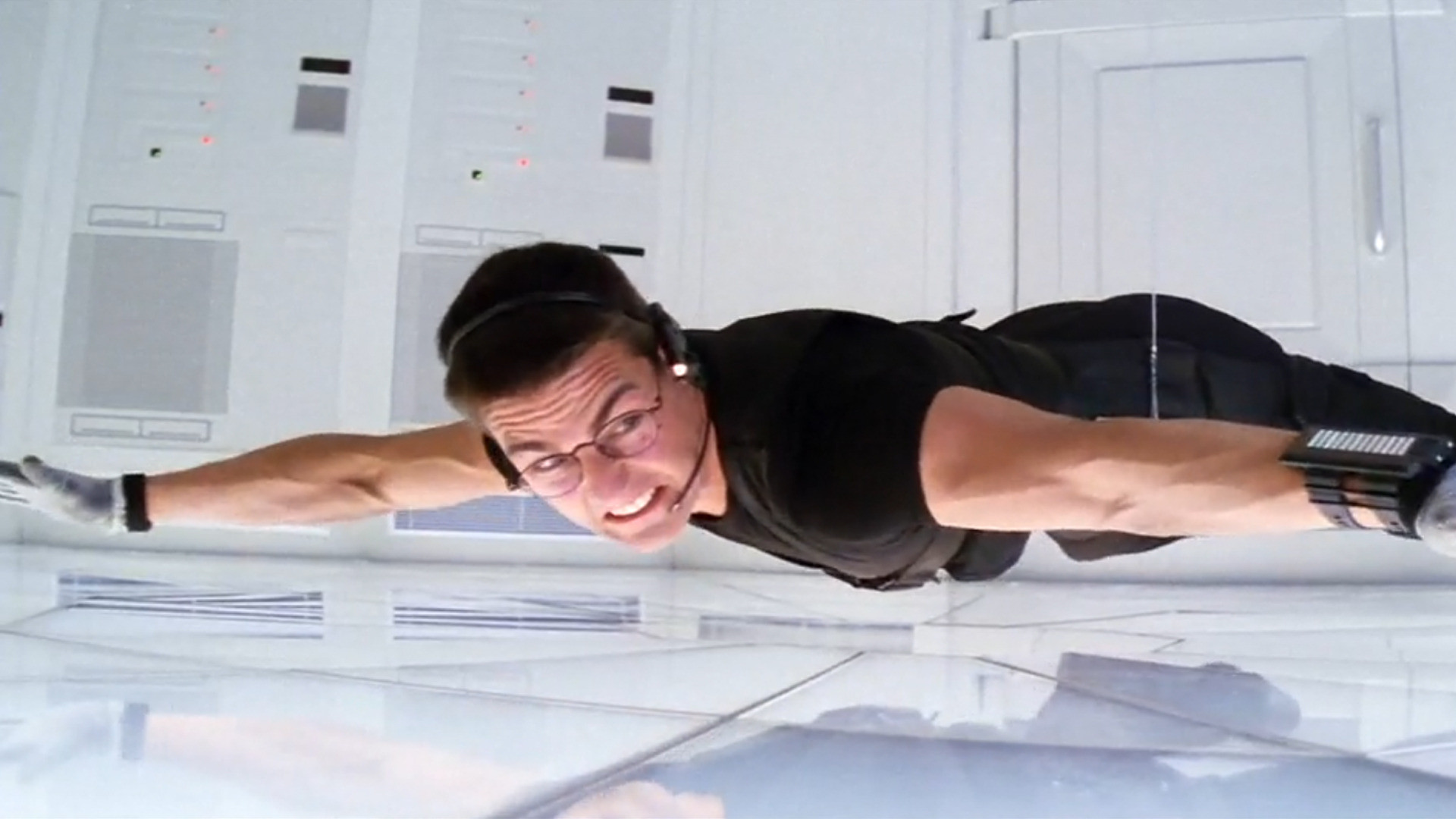
Mission: Impossible would go on to become the most successful and acclaimed action franchise of the 2010s, but none of that would be possible if Brian De Palma hadn’t nailed the original 1996 film. De Palma is notorious for his ability to shock his audience, and seeing Ethan Hunt’s entire team brutally murdered in the film’s early moments was the perfect introduction to the unpredictable world of the Impossible Mission Force.
It’s no less daring than the later installments, as De Palma weaves in noir elements to create an engrossing mystery filled with double crosses. The now iconic wire hanging scene established the franchise’s emphasis on practical stunts, and the final tunnel chase still holds up today. Ethan Hunt has always been a character who is forced to choose between saving his friends and saving the world, and the original Mission: Impossible was a perfect origin story for the character.
8. Speed
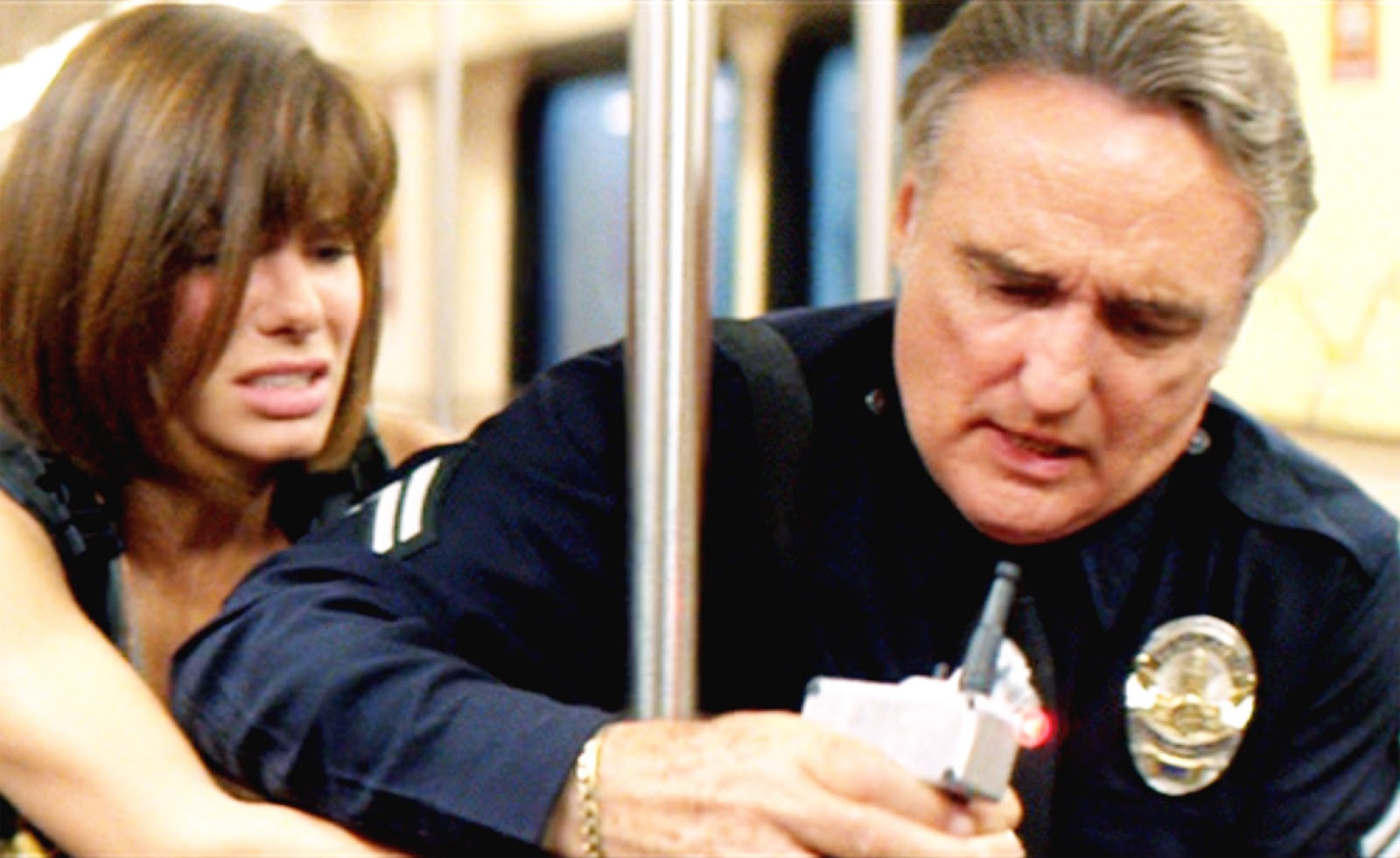
Another film that utilized the Die Hard formula, Speed is a relentless piece of escapism with an ingeniously simple premise: the terrorist Howard Payne (Dennis Hopper) rigs a bomb to a city bus that will explode if it dips below 50 mph, forcing police officer Jack Traven (Keanu Reeves) on the bus to find a way to get the passengers off.
It’s a straightforward story that allows for quick escalation, particularly as the mission becomes more personal for Jack when his partner Harry Temple (Jeff Daniels) gets drawn in the hunt to find Payne. Hopper is a wonderfully conniving villain who concocts some entertainingly wicked schemes, and as Jack, Reeves gives one of his best performances as a model action hero who carries the fate of everyone on the bus in his hands.
7. Starship Troopers
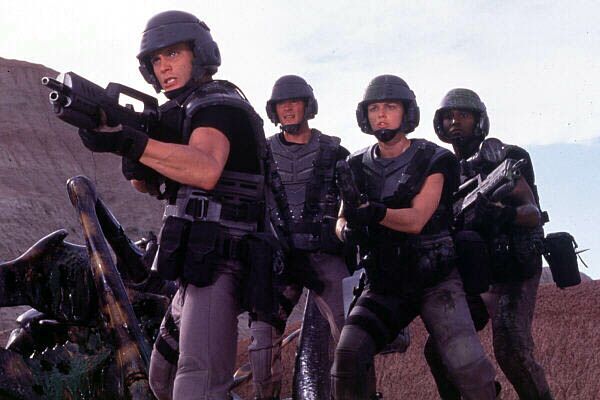
Often misunderstood, Starship Troopers has risen past its initially cool reception and emerged as one of the best examples of using exhilarating science fiction storytelling for a satirical purpose. The characters of Johnny Rico (Casper Van Dien), Dizzy Flores (Dina Meyer), Carmen Ibanez (Denise Richards), and Carl Jenkins (Neil Patrick Harris) are lifted from every stereotypical teen movie of the era, but director Paul Verhoeven puts his characters through hell as he puts them in a grimly realistic depiction of the banality of warfare.
The film doesn’t wink at the camera, but the extent to which it emulates propaganda films as the characters become even more radicalized as they crusade to defeat the alien race known as “The Bugs” is a stunning response to fascism and the cyclical nature of violence. Seeing Rico and his friends transform from idealistic stereotypes into part of a fascist regime is disturbing, and the fact that Verhoeven commits to his critique of militarism makes Starship Troopers a unique and underappreciated piece of action cinema.
6. Total Recall
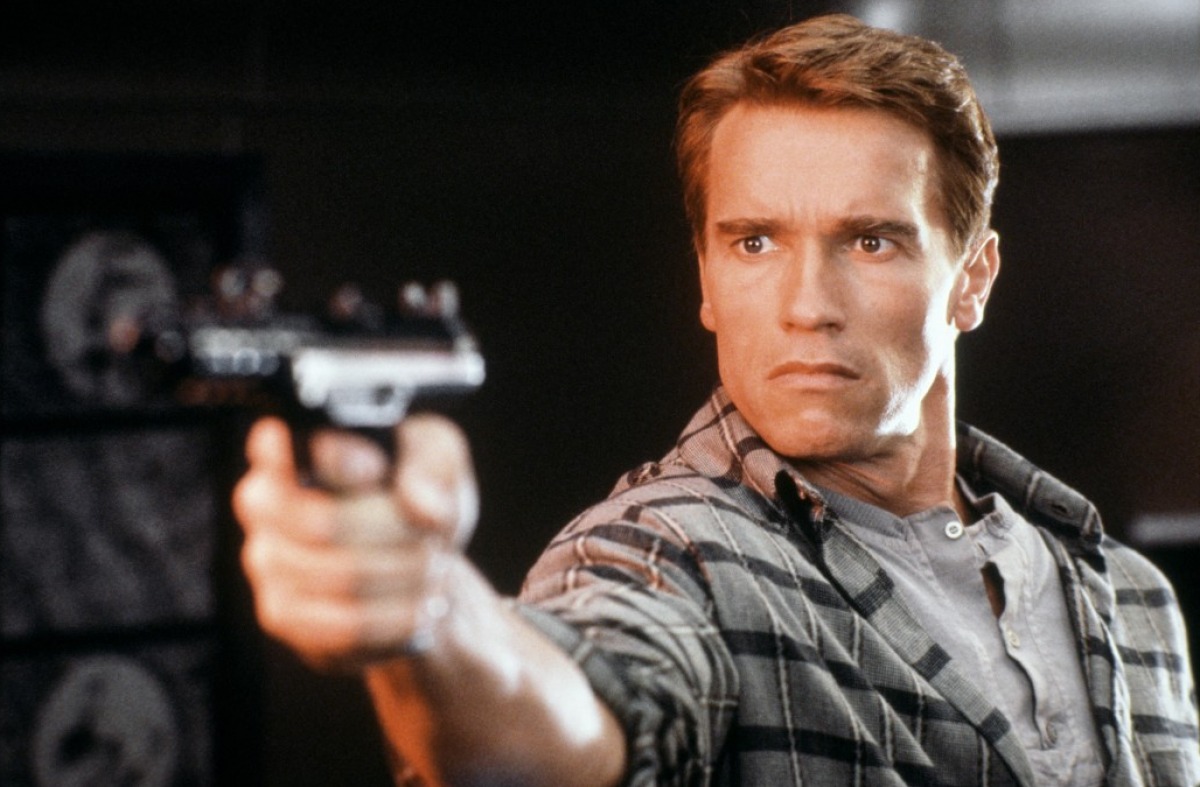
Another science fiction masterpiece from Paul Verhoeven, Total Recall is a wildly imaginative exploration of the nature of memory and the subjectivity of reality. Arnold Schwarzenegger is synonymous with a certain type of action film, but in Total Recall he gives one of his most surprisingly sensitive performances as construction worker Douglas Quaid, who questions his identity when he discovers repressed memories of being a secret agent after participating in a simulated reality experience. Verhoeven’s depiction of Mars is filled with wondrous practical effects, combining elements of noir cinema and surrealist macabre designs. It’s a thought provoking thriller with an expansive world, and the heavier philosophical ideas never distract from the visceral action.
5. Point Break
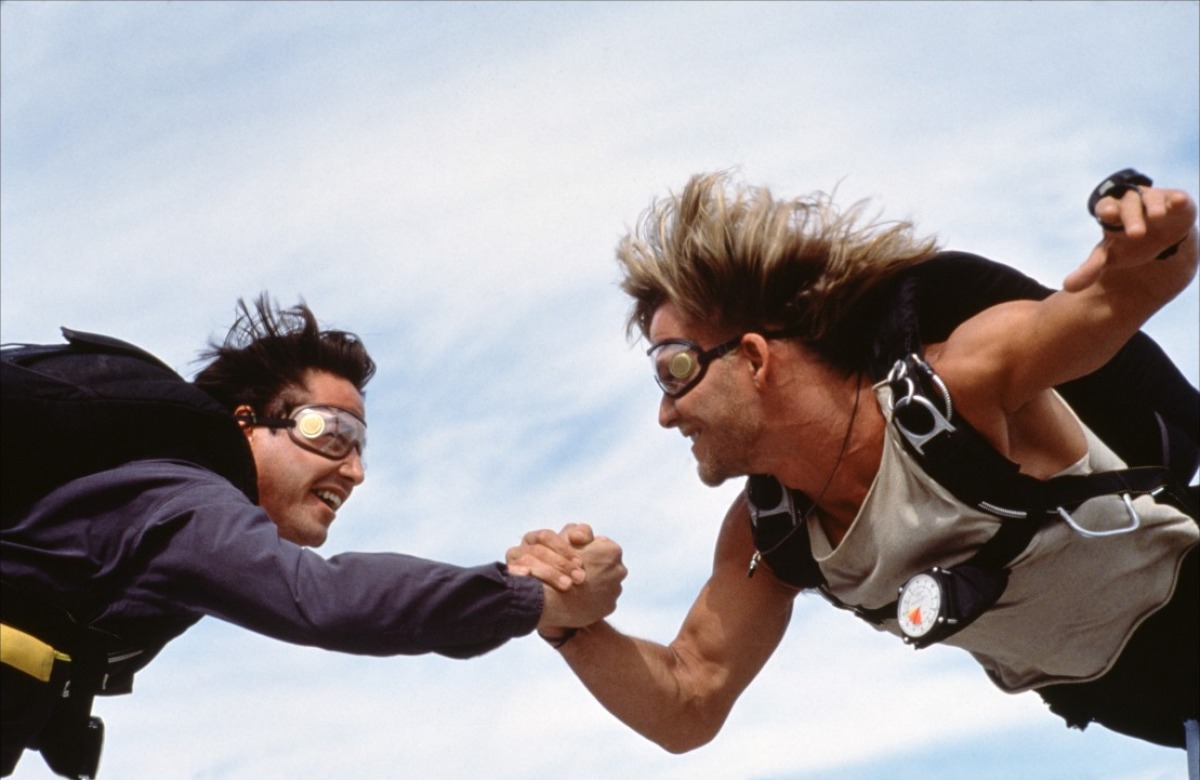
Kathryn Bigelow’s 1991 action classic is one of the slickest, coolest, and most purposively energetic action movies of that decade. It’s a film that revels in the absurdity of its premise and coasts on the charismatic star power of its leads, and the result is a strange mix of masochistic surfer philosophy and incredibly ludicrous stunt work.
Keanu Reeves gives a perfectly steely performance as FBI Agent Johnny Utah, who goes undercover with a group of surfers turned bank robbers called the “Ex-Presidents,” and becomes transfixed by their enigmatic leader Bodhi (Patrick Swayze). Swayze is able to make Bodhi’s philosophical yearnings understandable, particularly as he and Utah bond over their chase of adrenaline. Exploring the vastness of the coastline and surfing culture with a strong hangout element, Point Break is a remarkable feat of cinematic athleticism.
4. Leon: The Professional
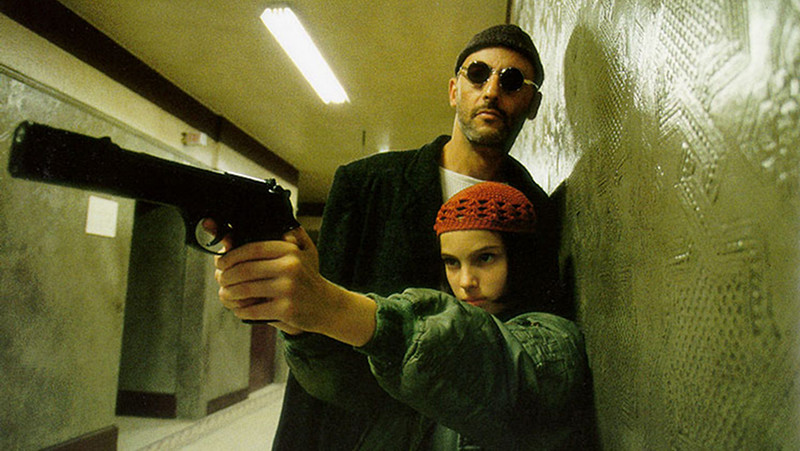
Luc Besson’s action classic combines his signature stylistic tendencies, namely his energetic sense of momentum and fascination with morally gray characters, and wraps them in a surprisingly sentimental story of assassin Leon Montana (Jean Reno), who helps 12-year-old Mathilda (Natalie Portman) avenge the death of her family by the corrupt cop Norman Stansfield (Gary Oldman).
The relationship is touching, as Leon helps the naive girl find her place in the world and becomes a surrogate father of sorts, and seeing a child’s perspective on the world of gangsters and criminals gives the story more emotional weight. Oldman is known for his ability to play over the top villains, and Norman Stansfield is one of his most unrestrained, terrifying characters. Strangely poetic and unrelentingly gruesome, Leon: The Professional was a breakthrough in French action cinema.
3. The Fugitive
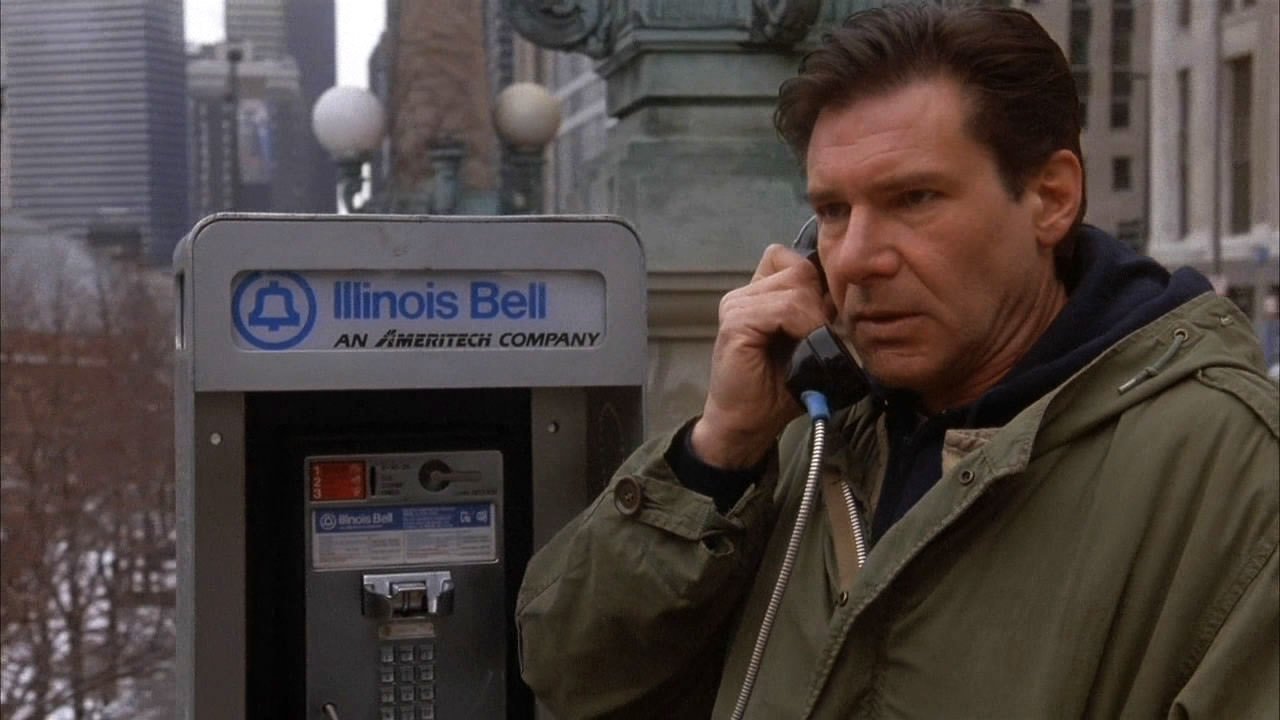
The Fugitive is a great example of how to reinvent material from a television series, as the film takes the premise of the classic TV show and elevates it into a prestige character drama. Dr. Richard Kimble (Harrison Ford) is placed in an unthinkable scenario: he’s wrongfully accused of killing his wife. What makes Kimble a great protagonist is that he’s got the skills and motivation to outwit and outrun his conspirators, and seeing Kimble gather the clues needed to find the actual killers is thrilling, particularly due to Ford’s emotional performance.
The clue gathering is nuanced and creatively shot, but that isn’t to say that the film skimps out on great action, as the initial train escape and final confrontation at the Chicago Hilton are downright iconic sequences of tension and perpetual dread. The film also features a brilliant supporting performance from Tommy Lee Jones, who won an Oscar for playing the disgruntled investigator who slowly learns Kimble’s story.
2. Terminator 2: Judgment Day
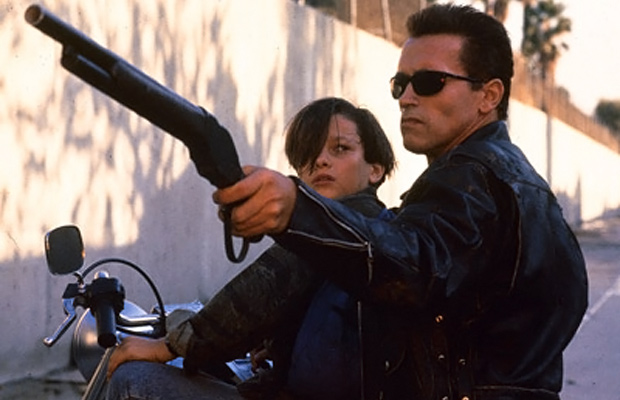
1984’s The Terminator was an instant classic, a thrilling suspense chase that announced James Cameron as one of the most innovative and ambitious filmmakers of his generation. However, Terminator 2: Judgment Day managed to top the first film in every way, and while it featured groundbreaking CGI visuals to realize the liquid T-1000, what made the film great was the characters. At the heart of the story is an untraditional family of sorts, as Sarah Connor (Linda Hamilton) has completely reinvented herself as a skilled warrior hell-bent on protecting her son John (Edward Furlong), who will save humanity in the future.
The genius twist was using the original Terminator (Arnold Schwarzenegger) as a hero, as he’s been reprogrammed by a future John to protect the family, and Schwarzenegger’s relationship with a young John ends up giving the film its emotional weight. Robert Patrick is utterly terrifying as the relentless T-1000, and the film retains the original’s frantic pace, but on an even larger scale.
1. The Matrix
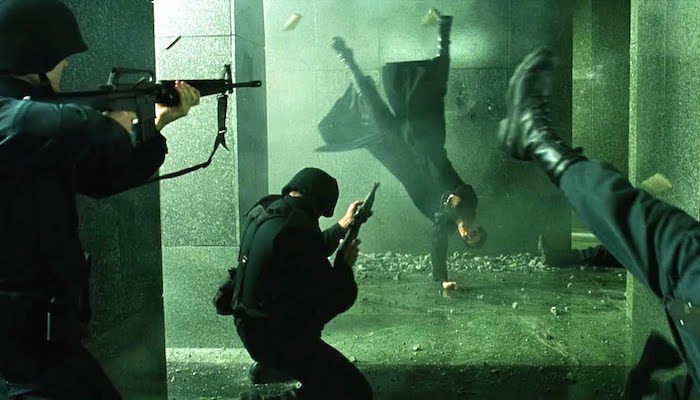
Over twenty years after its initial debut, The Matrix still feels as groundbreaking as ever, and remains one of the pinnacles of action filmmaking. Like the best science fiction films, The Matrix poses deep philosophical questions about the nature of reality, consciousness, and saviors, and imagines a world in which the simulated reality of machines has taken over the collective human consciousness.
By asking the viewers to wake up, the Wachowskis were able to imagine a highly original world in which traditional rules of filmmaking no longer applied, leading to innovative visuals including the highly influential “bullet time” sequence. However, it’s also the compelling characters that made the film so influential, as Neo (Keanu Reeves) embarks on a tumultuous journey in which one day he’s convinced he doesn’t matter, and the next he’s told that he’ll be the savior of the human race.
Reeves brings all of his best everyman qualities to the character, and is an appropriate audience avatar who learns new things about The Matrix at the same pace as the viewer. Indeed, Reeves’s stoic wonderment became synonymous with the film’s unique stylization, and the intimidating performance by Hugo Weaving as Agent Smith became his perfect counter. The Matrix was a film that instantly sent ripples through the filmmaking community, inspiring two disappointing sequels and countless imitators, but looking back, it still hasn’t been topped.